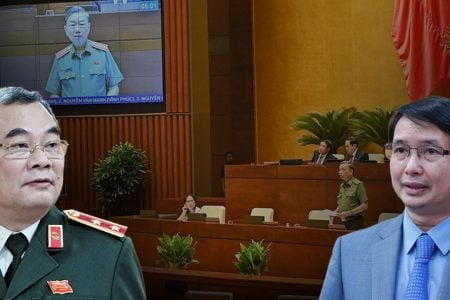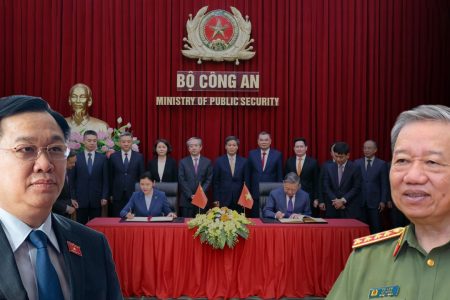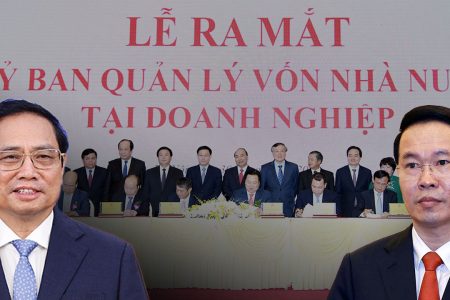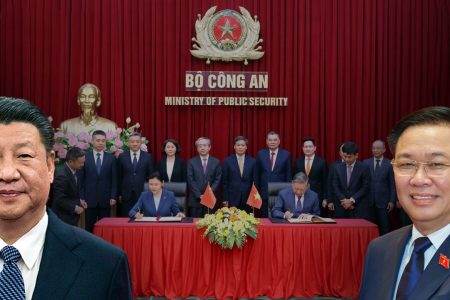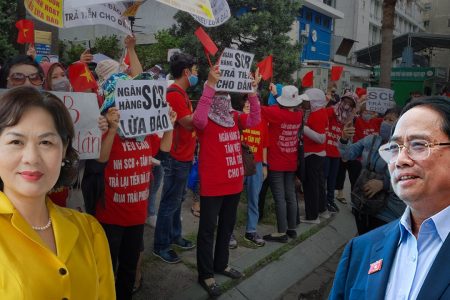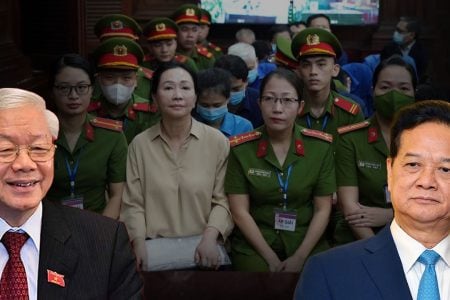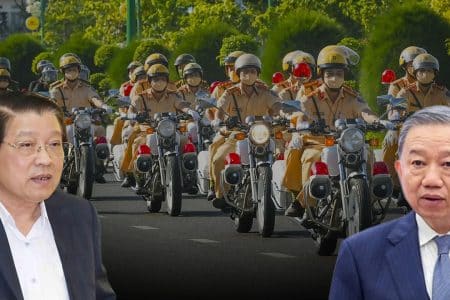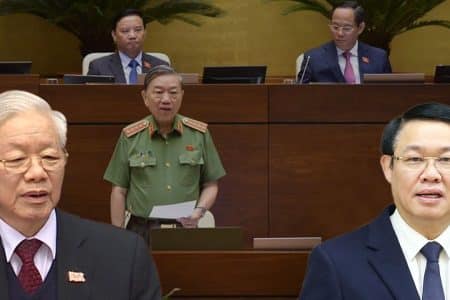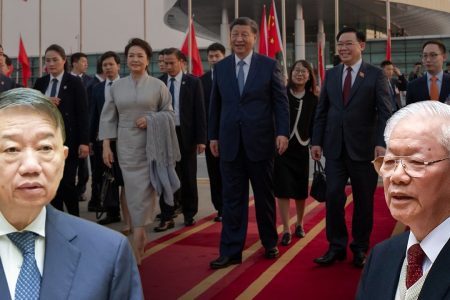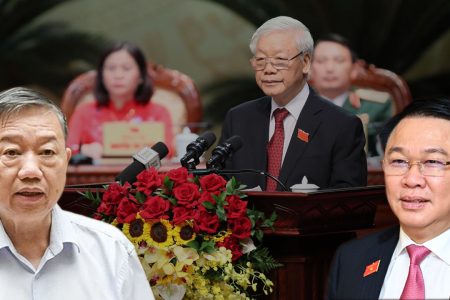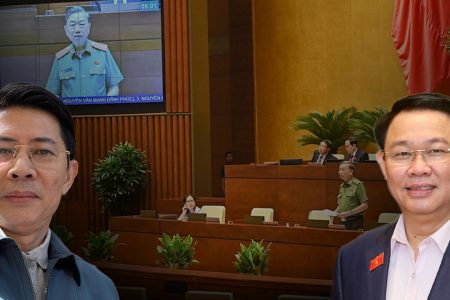
Vietnam is coping with a Covid-19 outbreak with an intensity that is believed to be quite strong in the community and in the front lines of the health sector, including hospitals in many provinces.
While authorities expect a reoccurence to peak within 10 days, the number of infections, severe cases and deaths may continue to rise, and are emerging concerns about whether Vietnam could be able to solve the implications of the new outbreak at the same time.
On August 6, some current observers from inside and outside Vietnam shared with BBC News Vietnamese their feelings and assessments, but first of all, in terms of perceiving the psychological-social impact from the community:
More worry compared to the first wave?
Associate Professor Nguyen Hoang Anh (researcher, university lecturer from Hanoi): Both official and informal media in Vietnam were too optimistic over the past time, so public opinion was quite shocked during the new wave of Covid-19. If in the first wave, the public opinion was quickly reassured, the loss of control in the second phase made the public confused and worried much more than the first.
Freelance journalist Song Chi (former TV director from Leeds, UK): I think there is a difference between the first Covid-19 appearance and the recurrence, this second wave people will be a little more worried. Because last time, Vietnam did not have anyone died, now there are 10 casualties, as of August 6, at the same time the number of infected people increased rapidly in just a short time. And some doctors and experts also forecast that more people at old age will die from, with underlying medical conditions, etc.
Some Vietnamese officials also frankly said that this period will be more difficult to stamp out because it used to be mainly from outsiders, but now because both outside and domestically, complicated travel schedules are difficult to trace more stains.
And this time, Vietnam doesn’t want to shut down completely like the last time because of economic problems.
It is also quite regrettable that last time, Vietnam had controlled the epidemic and anti-epidemic quite well compared to some other countries, but let the outbreak come back, perhaps partly due to subjectivity, completely reopened early without complying with all precautions carefully not only in the people but also in every store, service, shop, restaurant, etc.
For example, in the UK, the awareness of “health and safety” in all working environments, industries, offices, etc. have been formed into a routine, into a habit and a clear law carefully, so when they have to comply to prevent epidemics, they just go ahead, and in Vietnam, it is quite indifferent, and there is no law to punish.
Then the number of people coming to Vietnam, especially recently the phenomenon of many Chinese illegally entering Vietnam, the number of Vietnamese working abroad returning from the infected regions – for example 219 people returning from Equatorial Guinea, in which 129 people were infected with COVID-19 plus co-infected with malaria, suffered many organ damage … so the epidemic broke out again.

Associate Professor Pham Quy Tho (public policy analyst, Ministry of Planning and Investment): Danang city, in particular local hospitals, is the site of the Covid-19 outbreak. According to my observation, community infection F0 was not identified.
This strain of virus is changed so it spreads quickly and dangerously, easily leading to death in the elderly with background disease.
The starting time is said to be early July, however, the first case of infection is announced until July 25, and on July 28, the Prime Minister agreed to quarantine the whole city. This is the same time as the summer vacation, so the number of tourists coming to Danang was very large, it is estimated that since almost the whole of July, there are nearly 1.5 million arrivals and departures, so the ability to spread to the provinces is very wide and fast. At present, there are more than 10 provinces and cities having infected people.
I feel that the local government is passive, but supported by the central government, respond quickly based on the experience of the first phase: blockade of the living area of the infected person, quarantine the city, move severe patients from hospitals are suspected to be the source of transmission to other medical locations. Provinces are tracing, advising citizens to make medical declarations, quarantine themselves, and organize quick testing and testing. Currently, in Hanoi and Ho Chi Minh City are “overloaded” the number of suspected needing testing.
Upon learning of the outbreak, tourists were also “surprised” at first, then repeatedly canceled their trip to leave Danang before the blockade. The flight to “rescue” the number of trapped tourists was conducted on August 4. In general, in my opinion, local authorities and people are “not too” worried about dealing with the epidemic but not as “stressful” as the first wave.
How is the economy?
BBC: What about this effect in terms of economy? How is the ability of Vietnam to cope with anti-pandemic and anti-hunger concerns at the same time (economy, finance, trade, investment in employment, unemployment, etc.)?

Ms. Nguyen Hoang Anh: Covid-19 second phase, in my opinion, has a much bigger economic impact, travel services, aviation is the most seriously affected, other sectors are slower but all industries and sectors are affected. Because Vietnam’s economy is very open, when countries that are the main export markets of Vietnam in the US, EU, and Japan are in a recession, Vietnam’s economy will decline.
Unemployment will increase rapidly, GDP will decrease, Vietnam is considered as the leading optimistic country in the world, but if the economy does not improve, it is easy to go from one extreme to another, causing instability to the commune.
Ms. Song Chi: The US and European countries suffered worse epidemics than Vietnam, but they were rich and had money for better economic recovery. Vietnam is still poor, the Vietnamese economy is already based on export, so it is seriously affected. Online newspaper The Government has admitted that the COVID-19 pandemic has negatively affected the labor and employment situation. State media reported that as of June 2020, in Vietnam, there are 30.8 million people aged 15 and over that have been adversely affected by the pandemic, including those who have lost their jobs, have to take time off work / take leave alternating, reducing working hours, reducing income, … The impact of income reduction accounts for the highest proportion with 57.3% of the total number of affected people (equivalent to 17.6 million people).
Of the total of 30.8 million people affected, there are 28.7 million employed; 897.5 thousand people are unemployed and 1.2 million people are outside of the labor force (not participating in economic activities).
Therefore, it can be seen that for Vietnam and other developing countries, the problem of how to fight the pandemic well, minimize the number of infected people and the number of deaths, and still not let the economy go paralysed, the unemployment rate rising, the people not being too affected … is a not-so-simple problem and requires two things: synchronization and solidarity from the central to localities, departments in society and every citizen; and second, the state must have a plan. But each industry, locality, company must also have a plan how to solve this problem, together to overcome.
Mr. Pham Quy Tho: Between these two phases, there is a “silence” of more than 3 months in scenarios to estimate economic impacts, such as inappropriate GDP growth rate. Now there are studies that offer a more “modest” plan, such as the bad case when the pandemic is slowly controlled: GDP = 1.5%, average 3%, and as high as 4% in 2020. Normal prediction may be wrong and not ‘judgment’, so only for reference. The tourism, resort, and transportation industries, businesses associated with the global supply chain such as textiles, apparel, footwear … will be “hungry for orders” and small and medium-sized enterprises will have difficulties, thus the unemployment wave will continue at a high level in the rest of the year. The unemployment rate is more than 4% that the Ministry of Labor, Invalids, and Social Affairs estimates for reference only. Public investment is a “breakthrough” for growth that is actively driving but waiting for results, rather than efficiency. Import and export depend on the world situation against pandemics, but it may not be bright this year.
On the basis of analysis and evaluation of policies to help and save businesses, allowances for employees and affected objects, have been in place since the first phase, from which additional adjustments. In particular, in my opinion, it is necessary to pay attention to set and supervise the implementation, as well as the strict sanctions for “profiting” behavior.
How is education affected?
BBC: On the social side, how can education be affected (eg high school graduation exams, coming into the new school year …)? How should the solution be?
Ms. Nguyen Hoang Anh: Education in Vietnam will also be affected, as we have seen a series of private schools recently. The economy goes down, the money parents send their children to school will be less, so even in public universities the number of candidates will decrease. GDP decreases, investments in education are no longer the same, education officials need to have appropriate policies. The first things to do may be to abolish absurd exams or reduce annoying rituals such as opening … In my opinion, 4.0 early implementation in education is necessary to cope with Covid-19.
Ms. Song Chi: I feel that in the field of education, there is a need for active coordination between the school, teachers, local officials and families. Schools have to open but how are plans to open, college opening first, elementary school opening later, or opening at the same time? Full open or flexible, flexible in many ways. Examples of incorporating partial homework in class, such as 3-day switching between classes per week, class spacing, reducing the number of students by dividing shifts, overtime, may outdoor classes are okay … And always ensure safe conditions such as wearing a mask, frequent hand washing with soap with antiseptic, social relaxation, etc.
High school graduation exams should be cancelled. But it is also difficult that universities will have a basis for selection. If the temporary suspension has not yet calculated a method or criteria for recruiting other students but must continue to take the exam this year, then maximum precautions must be taken.
Each school, each locality needs to sit down to calculate how to reopen schools and limit pandemic spread. Anyway, human health and life still have to be more important.
Mr. Pham Quy Tho: The influence on the social field is inevitable. The high school graduation exam has been divided into two phases according to the spread of the disease and the Ministry of Education and Training is implementing. Give more authority to localities, units, training institutions to organize exams, recruits, prepare for the new school year, but strengthen supervision, inspection … Cultural events, sports, entertainment mind should perform as the first wave because of the public contagious nature.
This content is clearly stated in Directives 16 and 19 of the Government already. There won’t be a “more optimistic” directive given this situation of the Covid-19 pandemic.
Thoibao.de (Translated)







